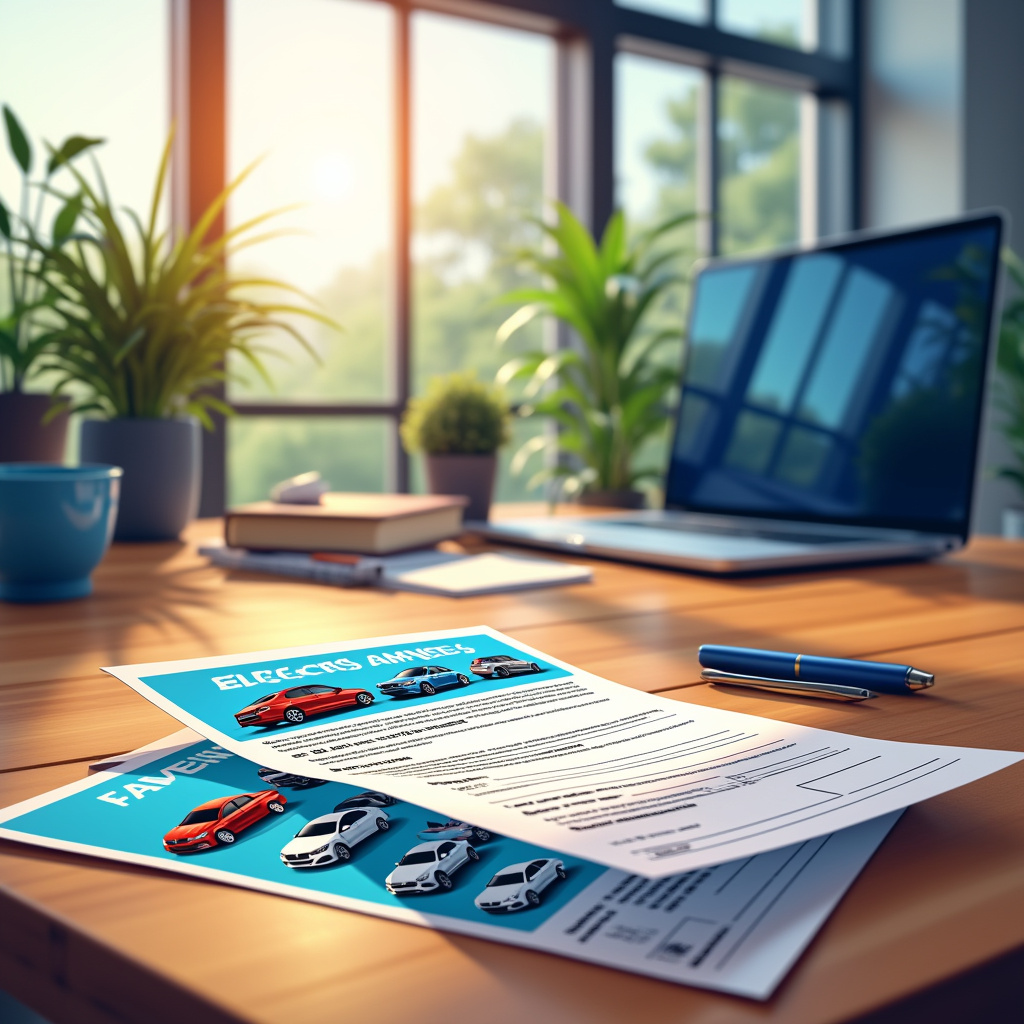
How to Lease a Car Through Your Business: A Comprehensive Guide
Leasing a car for business purposes can be an incredible opportunity, providing both financial benefits and convenience. Let’s explore everything from its advantages to the step-by-step process of securing your lease.
What Is Business Car Leasing?
Business car leasing, often referred to as Business Contract Hire (BCH), is an option most suitable for those who operate as sole traders, partnerships, limited companies, or VAT-registered businesses. This leasing model allows you to drive the latest vehicles while benefiting from various tax advantages.
Key Features of Business Car Leasing:
- VAT Claim: Up to 100% of VAT costs can be reclaimed. (100% Business Use) See GOV 4.2 Rule
- Tax Savings: Benefit-in-kind (BiK) rates for electric vehicles can be as low as 2%. See December 2024 Changes
- New Vehicle Frequency: Enjoy a new car every few years.
- Convenient Delivery: Free delivery to your chosen location.
- Cash Flow Management: Leasing helps preserve cash for other business investments.
Who Can Lease a Car for Business?
Before diving into leasing, it’s important to check your eligibility. To qualify, you must lease as either:
- A sole trader
- Through a partnership
- A limited company
- A VAT-registered company
Eligibility Criteria:
- Credit Checks: Standard affordability and credit checks will apply.
- Business Verification: Ensure your business structure meets the leasing company’s requirements.
- You May be asked to give a Directors Guarantee
How to Get a Business Car Lease From FVL
Leasing a car for your business is more straightforward than you might think. Follow these easy steps to get started:
Step-by-Step Process:
- Eligibility Check: Contact our sales team on 0333 00 333 25 for our friendly and free eligibility checker to confirm you can lease through your business.
- Choose Your Car: Select a vehicle that suits your business needs. Whether it’s a compact car for city driving or a spacious van for transportation, the choice is yours. Check our latest Special Offers
- Tailor Your Agreement: Customise your lease terms. You can decide on the following:
- Lease duration (typically 2-4 years)
- Expected mileage
- Initial rental payments (higher initial payments can lead to lower monthly fees)
- Confirm Details and Credit Check: Once you’re happy with the selected vehicle and terms, provide your details for a credit assessment.
- Delivery of Your Car: After approval, your new vehicle will be delivered to your preferred location free of charge. It’s as simple as that!
Why Is A Business Car Lease Cheaper Than Personal?
When comparing business car leasing to personal leasing, several financial advantages come into play, making it a preferred choice for many businesses.
Main Financial Benefits:
- VAT Tax Relief: As a business owner, you can reclaim VAT, significantly reducing overall costs.
- Lower BiK Tax Rates: Electric cars have significantly lower BiK rates, providing further savings.
Understanding VAT Benefits:
- 100% VAT Reclaim: Full VAT reclamation is possible if the vehicle is used solely for business.
- 50% VAT Reclaim: If the vehicle is used for both business and personal use, you can reclaim 50% of the VAT.
Company Car Tax Explained
You’ll pay car tax if you or your family use a company car privately, including for commuting.
You pay tax on the value of the company car, which depends on factors such as its cost and the type of fuel it uses.
This value of the car is reduced if:
- you have it part-time
- you pay something towards its cost
- it has low CO2 emissions
If your employer pays for fuel you use for personal journeys, you’ll pay tax on this separately.
When leasing as a business, you’ll pay Benefit-in-Kind (BiK) tax, which is determined by your vehicle’s P11D value, BiK rate, and income tax bracket. Here’s a simple breakdown of how this works:
Tax Calculation Steps:
- Identify P11D Value: This includes the car’s total value, VAT, and any added extras.
- Determine BiK Rate: For instance, a BiK rate of 2% for electric vehicles.
- Calculate Your Tax: Multiply the P11D value by the BiK rate and then by your income tax bracket.
Example Calculation
For a Tesla Model 3:
- P11D Value: £48,490
- BiK Rate: 2% (0.02)
- Income Tax Bracket: 20% (0.2)
Calculation:
- £48,490 x 0.02 = £970 (BiK Value)
- £970 x 0.2 = £194 (Annual Tax)
Comparatively, leasing a petrol car like a Mercedes-Benz C220d:
- P11D Value: £45,640
- BiK Rate: 29% (0.29)
Calculation:
- £45,640 x 0.29 = £13,236 (BiK Value)
- £13,236 x 0.2 = £2,647 (Annual Tax)
If you drive a hybrid
If your company car has CO2 emissions of 1 to 50g/km, its value is based on its zero-emission mileage figure, or ‘electric range’. This is the distance the car can go on electric power before its batteries recharge.

Cash Flow Considerations
Leasing is a form of credit that can significantly enhance a business’s cash flow. Instead of tying up capital in purchasing vehicles, leasing allows you to keep funds available for other investments.
Is Business Leasing Right For You?
If you’re keen on driving a new vehicle every few years while managing your business costs effectively, business car leasing may be the perfect solution. Consider the following benefits:
- Financial Flexibility: Access the latest vehicles without hefty upfront costs.
- Tax Efficiency: Utilise tax advantages to bolster your bottom line.
- Convenient Upgrades: Regularly upgrade your car using the latest models and technology.
Further Resources and Assistance
Explore our detailed guides for more insights on car leasing, costs, and whether business or personal leasing suits you better. Our dedicated advisors are also on hand to discuss your options and help determine the best choice for your business.
Conclusion
Leasing a car through your business can open up many opportunities, from financial advantages to the convenience of driving a new vehicle every few years. We can confidently navigate business car leasing by understanding the process and benefits involved. With its possibilities, why not consider this option for your next vehicle?
Call our Team on 0333 00 333 25
FAQ
1. What are the advantages of business car leasing?
Business car leasing offers VAT reclamation, lower tax rates for electric vehicles, and the flexibility of driving new models regularly.
2. Can any business lease a car?
Only sole traders, partnerships, limited companies, or VAT-registered businesses can lease cars for business purposes.
3. How do I calculate my company car tax?
Use the P11D value, BiK rate, and your income tax bracket to determine the annual tax amount.
4. What happens to my VAT when leasing a car?
You can reclaim up to 100% of the VAT if the vehicle is used solely for business. If it is also used for personal reasons, you can reclaim 50%.
5. Is leasing a car easier than buying one outright?
Yes, leasing often requires less upfront investment, allows for better cash flow management, and benefits from regularly upgrading to newer models.
- The Peugeot 408: A Premium Hybrid That Stands Out - December 18, 2024
- UK Auto Industry Challenges Amid EV Transition - December 11, 2024
- EV Charging Costs in AA Report for October 2024 - December 6, 2024



